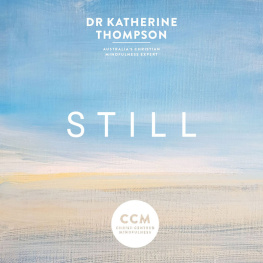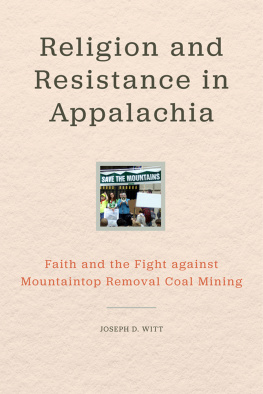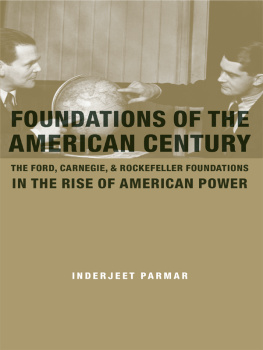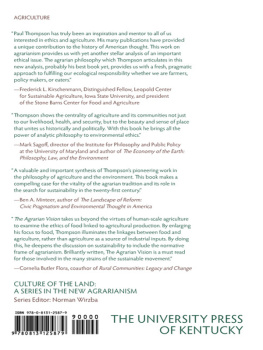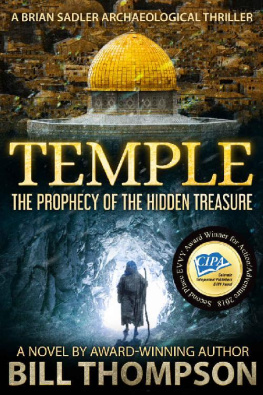Sacred
Mountains
Sacred
Mountains
A Christian
Ethical Approach to
Mountaintop Removal
ANDREW R. H. THOMPSON

Due to variations in the technical specifications of different electronic reading devices, some elements of this ebook may not appear as they do in the print edition. Readers are encouraged to experiment with user settings for optimum results.
Copyright 2015 by The University Press of Kentucky
Scholarly publisher for the Commonwealth, serving Bellarmine University, Berea College, Centre College of Kentucky, Eastern Kentucky University, The Filson Historical Society, Georgetown College, Kentucky Historical Society, Kentucky State University, Morehead State University, Murray State University, Northern Kentucky University, Transylvania University, University of Kentucky, University of Louisville, and Western Kentucky University.
All rights reserved.
Editorial and Sales Offices: The University Press of Kentucky
663 South Limestone Street, Lexington, Kentucky 40508-4008
www.kentuckypress.com
Library of Congress Cataloging-in-Publication Data
Thompson, Andrew R. H.
Sacred mountains : a Christian ethical approach to mountaintop removal / Andrew R.H. Thompson.
pages cm. -- (Place matters : new directions in Appalachian studies)
Includes bibliographical references and index.
ISBN 978-0-8131-6599-8 (hardcover : alk. paper)
ISBN 978-0-8131-6601-8 (pdf) ISBN 978-0-8131-6600-1 (epub)
1. EcotheologyAppalachian Region. 2. Mountaintop removal mining--Appalachian Region. I. Title.
BT695.5.T474 2015
This book is printed on acid-free paper meeting the requirements of the American National Standard for Permanence in Paper for Printed Library Materials.

Manufactured in the United States of America.

| Member of the Association of
American University Presses |
They will not hurt or destroy
on all my holy mountain;
for the earth will be full of the knowledge of the Lord
as the waters cover the sea.
Isaiah 11:9
Contents
Preface
Ethics in Its Place
To consider place is to consider the particular. To attend to place is to be mindful of the lived, embodied experience of a particular locale. As philosopher Edward Casey argues, knowledge is based on perception, and perception always occurs in a place; in this sense, all knowledge is local knowledge, in that it arises from embodied experience in a particular place. Thus, to be really useful and accountable to human experiences, our reflections of whatever sortethical, philosophical, theologicalmust literally be grounded; they must attend to places.
This book can be characterized a number of ways. It is a work of ethics. As such, it would typically be described as a work of Christian environmental ethics, although I believe and will argue that its relevance exceeds both these qualifiers. It addresses an issuemountaintop removal (MTR) coal miningthat is uniquely Appalachian, so it also fits into the genre of Appalachian studies and incorporates many of its disciplines, such as sociology and history. But cutting across these characterizations, and insinuating itself into multiple aspects of my approach, is the issue of place. This is a book about ethics in a particular place.
The notion of place itself receives explicit consideration at multiple points (specifically, ). The idea of a special relationship to place has long been used to characterize the people of Appalachia. As I argue, this association has at times been problematic. Nonetheless, the issue of MTR inevitably and forcefully causes us to pay attention to place, to the particular places that are being radically transformed. It forces us to reflect on how we conceive of places like the Appalachian Mountainsas pristine wilderness? as resources? as home?and how these conceptions influence us and the mountains themselves.
Thus, an ethical response to MTR simply cannot avoid a consideration of place. Beyond that, the approach I describe, theocentrism, is especially attuned to place because of its emphasis on the concrete and the particular. Throughout this work, I address the detailsscientific data, personal stories, popular narratives, local historiesthat shape and challenge moral action in this particular place. I articulate an approach that responds to this issue not in the abstract but in the concrete places where it is being practiced and contested. I offer one proposal of how ethics might be done in particular places, even as those places are being transformed in powerfully unprecedented ways.
Introduction
Overturning Mountains
They put their hand to the flinty rock,
and overturn mountains by the roots....
But where is wisdom to be found?
And where is the place of understanding?
Job 28:9, 12
In April 2008, on a misty morning in the mountains of Kentucky, a group of Christians gathers in the shadow of a surface-mined mountain for a prayer service. The liturgy follows the pattern of the Stations of the Cross; the wooden cross they carry has a large piece of coal secured to it with barbed wire. They pray for the health and renewal of the mountains and mountain communities around them; they mourn the greed and thoughtlessness that are destroying that environment for the sake of cheap energy. In response to a lament of corporate greed, they intone, Let us take the symbol of the cross as our sign of generosity. Allen Johnson, the founder of Christians for the Mountains, explains, The cross shows the victory of God in the face of death and oppression, that the last word is not death, despair, but is hope, life, resurrection.
On another day, on a mountain in southern West Virginia, Andrew Jordon, the owner of Pritchard Mining, convenes a Bible study group in a small cabin overlooking a 1,400-acre surface mining operation (relatively small for this method of mining). The participants discuss what stewardship of creations resources means in this context. One regular member of the group has been inspired to capture the site in paintings. Jordon is proud of what he has created here. He employs 165 people in an area where work is hard to come by, and he prides himself on training and caring for his young employees. He believes his efforts to reclaim mine sites, some of which were abandoned by previous operators, represent responsible stewardship and real environmentalism.
These people and many others like them are drawing on their religious beliefs to respond to the mining practice known as mountaintop removal (MTR). This kind of mining has become a distressingly contentious issue in the Appalachian Mountains, dividing communities and churches and leading to emotional and even violent confrontations. It has been criticized for polluting the land, destroying ecosystems, injuring and sickening families, and even costing jobs, since its reliance on huge machines means it requires fewer and differently trained employees. At the same time, the debate over this practice touches on deeply held beliefs about what it means to be a miner, to love the mountains, and to live in Appalachia, incorporating and manipulating a wide range of assumptions and stereotypes about these ideas. That this issue calls for a response from the church is, as several Christians have put it, a no-brainer. But contrary to what they might argue, determining an appropriate Christian response to MTR is not so simple.
Next page

